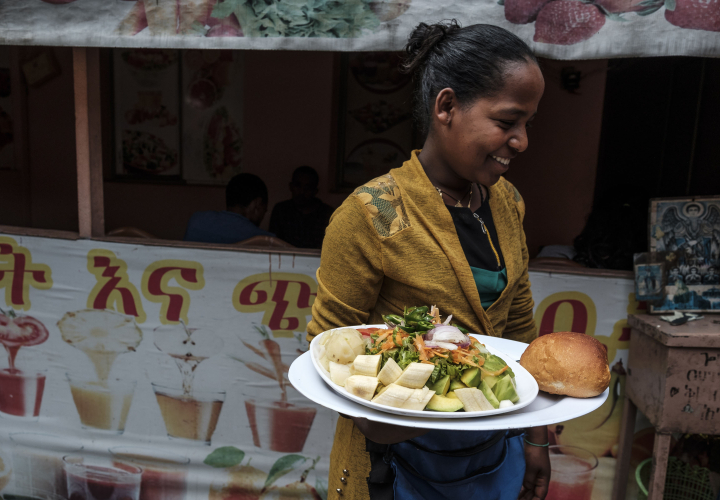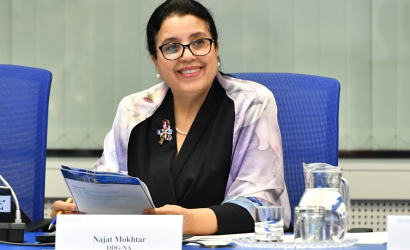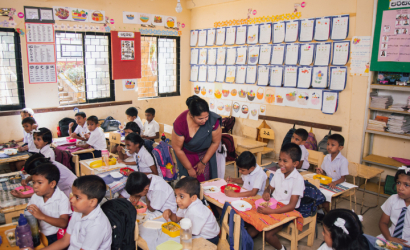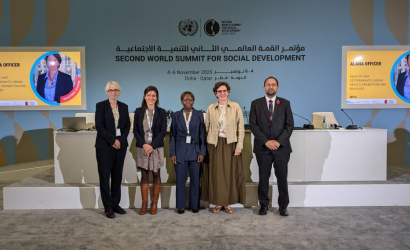Two continents, two events, two perspectives. Valerie Julliand and Fodé Ndiaye are both United Nations Resident Coordinators (UNRCs) and avid advocates for nutrition. They recognize the links between nutrition and the Sustainable Development Goals (SDGs), the returns on investment it can bring and the consequences of inaction. Valerie is currently leading the UN country team (UNCT) in Indonesia while Fodé is serving in Rwanda.
Despite the different contexts, there were clear parallels between their interventions at the Asia and East and Southern Africa roundtable events, organized by the SUN Movement Secretariat and the Global Nutrition Report team in February. First, the United Nations Sustainable Development Cooperation Framework (UNSDCF) is an important tool that UN Nutrition and UNCTs can leverage, both to foster inter-agency collaboration on nutrition and ensure such support is aligned with national priorities. Secondly, the COVID-19 pandemic has created an urgency for the UN agencies to band together not just for nutrition advocacy, but also to provide technical assistance to governments on COVID-related adaptations to enable the continuity of nutrition services and related harmonized messaging such as on the promotion of breastfeeding and food safety in the context of COVID-19.
“Covid has forced us to be more creative and to link the different elements,”
stated Valerie. Thirdly, both UNRCs see the value in expanding membership to other UN agencies, such as ILO, to holistically address the causes of malnutrition, including new vulnerabilities.
However, there is no one-size-fits-all approach. In Indonesia, six UN agencies (FAO, IFAD, UNFPA, UNICEF, WFP and WHO) come together on nutrition through a combined UN-Donor Network. Fodé urged for “unconventional methods, innovations, the involvement of communities, civil society and the private sector” to tackle malnutrition. He also mentioned that the UN Nutrition team of five agencies (FAO, IFAD, UNICEF, WFP and WHO) has benefited from the support of a neutral facilitator, including in the design of the joint stunting reduction programme that engages multiple ministries.
Valerie and Fodé see the UN Food Systems Summit (FSS) and Tokyo Nutrition for Growth (N4G) Summit as opportunities to elevate nutrition on the political agenda. They also see this as a time for bold action. The massive scale up of Rwanda’s school feeding programme is a source of inspiration, showing that positive change is possible even amid a global pandemic. The UN is supporting the Government of Rwanda through menu modelling and encouraging the use of locally sourced nutritious foods, as it seeks to increase coverage from 640,000 to over 3 million students. With 149.2 million children under 5 years old wasted, 45.4 stunted and 38.9 million overweight worldwide and the figures likely to be higher in view of the COVID-19 crisis,[1] what are we waiting for?
The participation of UN senior leadership in these types of roundtables is one strategy to push for increased investment in nutrition, even when resources are limited and as countries rollout their COVID-19 vaccine campaigns and responses. These events and the N4G Summit are also prime opportunities to underscore the links between nutrition, the environment, immunity and COVID-19, and remind donors and governments that it is no time to be put nutrition on the back burner.



